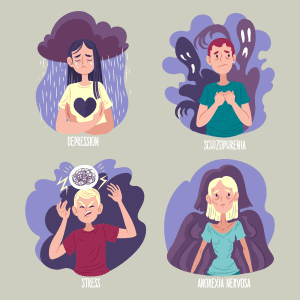Meditation is an effective technique to relax your body and mind. It has many benefits, especially when it comes to irregular sleep patterns. Meditating before sleeping has many benefits for the mind and body.
Complete Guide to Bedtime Meditation
Meditation is a technique to relax your mind and to stay emotionally and mentally clear and stable. This increases your ability to focus on things precisely. Did you know? Meditating at night improves the quality of sleep for the average person. A healthy sleep cycle plays a major role in overall mental wellness. Be it weight loss, heart rate, blood pressure, or any other aspect, sound sleep plays a key role everywhere. And thanks to sleep meditation, you can now not only enjoy a sound sleep, but also relax your mind and body before you fall into comfortable slumber.
Benefits of Bedtime Meditation

Meditation is beneficial in many ways. Here are some benefits of meditating everyday before bedtime:
– De-stresses the mind
– Increases focus
– Drives self-awareness
– Filters negative thoughts
– Improves overall well-being & physical health
Our Wellness Programs
Types of Meditation
There are several types of meditation as described below:
Spiritual Meditation
This meditation brings you closer to the Almighty. It helps you focus, increases your attention span, and brings mental stability and peace.
Focused Meditation
This involves concentrating on any of the 5 senses. It increases sensory organ reception. This is ideal for people who are looking to focus on something in their lives specifically.
Mindful Meditation
This is the perfect beginner-level meditation. Here, you need to notice your thoughts as they pass through your mind without paying minute attention to them.
Movement Meditation
This meditation involves improving your mind through actions. So, walking, cooking, or even talking to someone can serve as a movement meditation.
Mantra Meditation
This refers to the teachings in various disciplines. Chanting of Om or other mantras might improve concentration and mental wellness.
Transcendental Meditation
This is a popular type of meditation. Here, chanting of some words or mantras improves concentration. This is a specialized form of meditation which is widely practiced in the modern era.
Progressive Meditation
This meditation involves relaxing the muscles to soothe your nerves and body at the same time.
Looking for services related to this subject? Get in touch with these experts today!!
Experts

Banani Das Dhar

India
Wellness Expert
Experience: 7 years

Shivani Kudva

India
Wellness Expert
Experience: 3 years

Devika Gupta

India
Wellness Expert
Experience: 4 years

Trupti Rakesh valotia

India
Wellness Expert
Experience: 3 years

Sarvjeet Kumar Yadav

India
Wellness Expert
Experience: 15 years

Shubham Baliyan

India
Wellness Expert
Experience: 2 years
Should I Meditate Before Sleeping?
Insomnia is majorly related to stress. Because of stress, the mind wanders and thus, we are unable to relax. Try sleep meditation to relax and drive away negative thoughts from your mind.
Meditation also helps calm the mind, and thus, improves sleeping patterns. It helps in the production of a sleep hormone called melatonin. Meditation further helps in the increase of serotonin – a sleep-inducing hormone. Some people also practice yoga nidra for sleep, as yoga has been proven to effectively deal with insomnia.
Meditation to fall asleep is specifically advised twice a day – in the morning and night. When you are dealing with sleeplessness, meditation at night just before sleeping is useful. It relaxes the mind and helps you detach from your usual worries and tensions. Try meditating for a minimum of 15 minutes every day before you sleep and notice the difference in your energy & positivity when you wake up. A relaxed mind will keep you calm and active in the morning. It will help to wake up early and give you an active day ahead. It is advisable to start practicing sleep meditation at night. And, you will surely notice positive effects on your sleep cycle and overall mental well-being.
Morning Meditation vs. Night Meditation

You can meditate twice a day, morning and night; both are suitable for meditation. Both have their own set of pros and cons.
Meditating in the Morning
Many people practice morning meditation. If you are an early riser and are looking to relax and motivate yourself, nothing works better than morning meditation. Morning meditation coupled with a regular exercise routine will provide many health benefits. It will keep you active and focused throughout the day. If you have a busy schedule in the morning, meditation might not be your cup of tea. In this case, you can consider meditating at night instead.
Meditating at Night
Night meditation has many pros, just like morning meditation. Especially if you are a night person, you can choose to meditate at night for a relaxed and comfortable sleep. If you work a job with a night-shift, try night-time meditation to experience better productivity at night. Also, if you are suffering from sleeplessness, bedtime meditation might prove to be a boon. Meditating at night also helps de-stress your mind, keeps you calm, and boosts mental peace. Bedtime Meditation is also useful in regulating blood pressure that keeps your heart healthy.
You can choose one of the two. Be it morning or night meditation, you should decide what time to meditate based on your daily routine and availability. Choose the one that goes well with your daily schedule. Whatever time you choose to meditate, try to stick to it and enjoy the practice of daily online meditation.
Meditation for Treating Insomnia and Sleep Disorders

Meditation has been used for centuries to treat a variety of health issues. Many health experts have used meditation to treat chronic insomnia and regulate sleeping patterns.
Many a time, it is observed that sleeplessness is because of excessive stress. Insomnia is the state of an active and fully-aroused mind. You drift to sleep when your mind is fully relaxed, and with meditation, you can enjoy this state. You might be facing a tough time relaxing and then sleeping after a tiring and stressful day. So, what you can do is try to meditate before bedtime every night. Try meditating for at least 15 minutes before sleeping and observe how significantly it improves your sleep.
There have been numerous studies pointing towards how meditation reduces cortisol levels in your body. Try guided bedtime meditation if you’re looking for better sleep quality, as it will improve your overall sleep pattern and control other symptoms related to stress. However, it is best to consult a doctor without further delay if you still have problems falling asleep at night.
Benefits of Sleep Meditation
Guided meditation has been proven to help many individuals dealing with sleep-related issues. Health experts, psychologists, and doctors believe that meditation is one of the best, most inexpensive ways to help with falling asleep. Many young and even middle-aged people have made meditation a part of their daily routine to improve their lifestyle and sleep well. Try 30 minutes of guided sleep meditation every day and see the difference it makes to your overall well-being.
Let’s look at how sleep meditation is beneficial for the mind and body:
- 1. Sleep meditation de-stresses your mind and releases a sleep-inducing hormone that helps you sleep soundly throughout the night.
- 2. Be it blood pressure, weight loss, or heart rate, meditation is a secret tool that benefits you in multiple ways.
- 3. Meditation, in simple terms, is the ability to relax the mind. This is proven to help sleep in some of the most critical cases of insomnia as well.
- 4. Morning meditation reduces cortisol hormone levels in the body, which has a wide range of health benefits. It also promotes a healthy heartbeat and lowers blood pressure.
- 5. Meditation is known to activate the part of the brain that facilitates the cycle of falling asleep. And thus, it ensures overall calmness and treats improper sleeping habits.
Step by Step Meditation Before Bed

Scientifically, it has been proven that meditation is one of the best ways to fall asleep. But in case you are wondering why you are unable to sleep well even after meditating before bed, we will tell you why. Here’s the secret you’ve always wanted to know: you might be doing it all wrong! Bedtime meditationis a process, and you need to do it in a synchronized manner. Once you complete all the steps efficiently, only then will you be able to gain from it.
Let’s look at all the steps given below and understand their relevance –
Step 1 – Preparing the Environment
Your environment is crucial; ready your room and bed for meditation. Make way for a clean bed with neatly laid out sheets. If you prefer open windows or turn on the AC, make the necessary arrangements. Keep the room dark, but comfortable.
Step 2 – Breathing
In this step, you need to focus on your breathing. If you have severe insomnia, you should try mindfulness sleep meditation. In this type of meditation, Inhale and exhale deeply. Focus on your breathing and repeat the process. Even if some thought disturbs you, let it go and focus again on your breathing.
Step 3 – Relax
The key to breathing is relaxation. Try to relax and leave your body light and tension-free. Feel your body floating while you breathe with your eyes closed, and slowly you will drift off into deep REM sleep.
Step 4 – Listen to Music [Optional]
If you are still struggling to sleep at this stage, you can also try music meditation for sleep. Play calm instrumental music to help yourself fall asleep.
Step 5 – Listen to a Story [Optional]
If you still cannot sleep by following steps 1-4, go for calm sleep stories. This is the deep sleep meditation that will surely help you relax, take your mind away from worries, and help you sleep peacefully
When Not to Meditate Before Sleeping
Everyone feels that meditating to sleep better is one of the best treatments for insomnia. But this is not entirely correct. Many health experts suggest that meditation helps in awakening one’s mind and thoughts. In other words, meditation helps keep you active. Some have also experienced that meditating before going to bed drives away the need to sleep as it keeps the mind awake and focused.
Thus, many health experts believe that you must stop the practice of meditation at night if you have thoughts post-meditation. Even nighttime sleep stories keep the mind awake in some cases. It might prove to be useful in some cases.
Listen to Deep Sleep Meditation to Sleep at Night

People struggling with severe insomnia or other sleeping issues must go for guided meditation. In this form of meditation, you will hear a person issuing instructions or light instrumental music while your eyes are closed, and slowly it will help you relax, drift off to sleep. You can also take the help of online technology.
Several online apps can help with guided bedtime meditation. Your best option is the United We Care app, which has a lot of self-care resources such as sleep meditation audios and nighttime meditation video sessions. Designed by healthcare professionals, psychologists, and social workers, the UWC app helps lower anxiety and de-stress the mind. With proper counseling and by speaking your heart out to experts, you will find a balance within yourself which will improve your overall mental well-being. This is one of the best ways to try sleep meditation free of cost.



 Conflict Management in Relationships
Conflict Management in Relationships

 Healing from Heartbreak
Healing from Heartbreak
 Coping With Anxiety
Coping With Anxiety
 Get Started With Mindfulness
Get Started With Mindfulness








